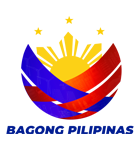The Ateneo de Davao Rocket is launched in the desert of New Mexico during the Spaceport America Cup Competition.
DAVAO CITY (PIA) — In what appears to be a giant step that would showcase the ingenuity of young Filipino scientists, a 20-member delegation from Ateneo de Davao University (ADDU) flew to New Mexico, USA, to compete against equally formidable teams from 20 other countries for the prestigious Spaceport America Cup 2024.
With over 1,700 students representing 200 universities, the Ateneo-based Philippine delegation is showcasing its high-powered rocket Sibol, with an 8.8 payload capable of soaring to as high as 10,000 feet, as its entry into the competition.
“This rocketry team has made history as the first representative from the Philippines to be eligible to compete at the prestigious Spaceport America 2024. This monumental milestone highlights the exceptional talent and ingenuity of our Filipino students in the fiercely competitive global arena of aerospace engineering,” ADDU President Fr. Karel San Juan SJ said during a press briefing with members of the rocketry team.
Considered the world’s largest intercollegiate rocket engineering competition, Asian countries are hardly able to qualify for the prestigious tilt embarking on the future of rocket science from the perspective of the students. In the previous years, only Taiwan and Thailand have managed to send their contingents into the rocket science category.
Interestingly, the Philippine team will be competing in the solid propulsion category, specifically in the 10,000 commercial off-the-shelf bracket.
“This means our rocket, which will be carrying a payload of 8.8 kilograms, should reach an altitude of 10,000 feet. Wherein from there the rocket will deploy its parachute and then descend to the ground,” according to Dr. Rogel Mari Sese in his capacity as department head of ADDU’s Aerospace Engineering.
Sese, however, finds it imperative for the Philippine delegation to hit the mark with precision to avoid penalties that could affect the final results of the competition: “You need to target; even if you can reach higher heights, if you exceed the target altitudes, there are penalties for that.”
Asked what drove ADDU to join the global rocket science tilt, Sese claimed that the Philippines has what it takes to become a space nation but, for some reason, has been lagging behind, for which he cited the need to venture into aerospace engineering and space development.
“Our country is considered an emerging space nation, especially with the passage of Republic Act 11363 in 2019, which put forth our space program and our space policy. And since 2018, Ateneo de Davao University has been offering aerospace engineering as part of our efforts to help the country towards space development,” Sese noted.
However, the ADDU aerospace engineering department head clarified that space development is not limited to satellites and exploring space but is an essential component for the country’s development.
To prove his claim, Sese hinted at the potential use of satellites to monitor farmlands, make projections as to harvest output, land use planning, and precision agriculture, among others.
Citing the geographical features of the region, Sese also toyed with the idea of transforming Davao into an innovation and technology hub, embarking on aerospace engineering.
“Not just for test launches, but in the future, we hope we can launch rockets into outer space because we have the whole eastern seaboard because most of the rockets launched into space are launched in the eastern direction.”
Fourth-year aerospace engineering student Franz Gueverra, who forms part of the rocketry team, considers their entry into the competition as one giant step towards rocket development in the Philippines.
“Since last year, we have been planning to take part in this prestigious competition. The submission alone was quite stringent, particularly the requirements, but fortunately, we successfully passed all the necessary reviews and checks done by the organizers of the competition,” Guevarra quipped. (PIA/RGA)














